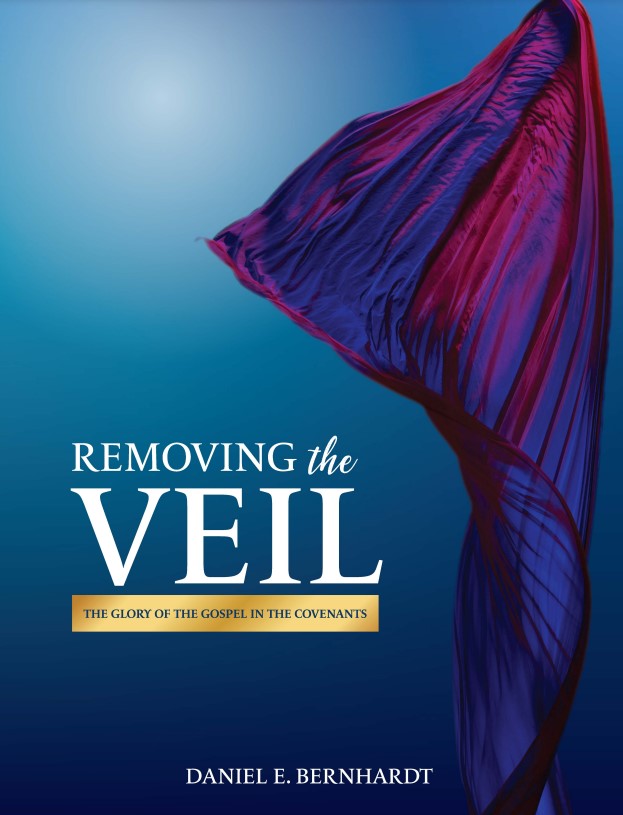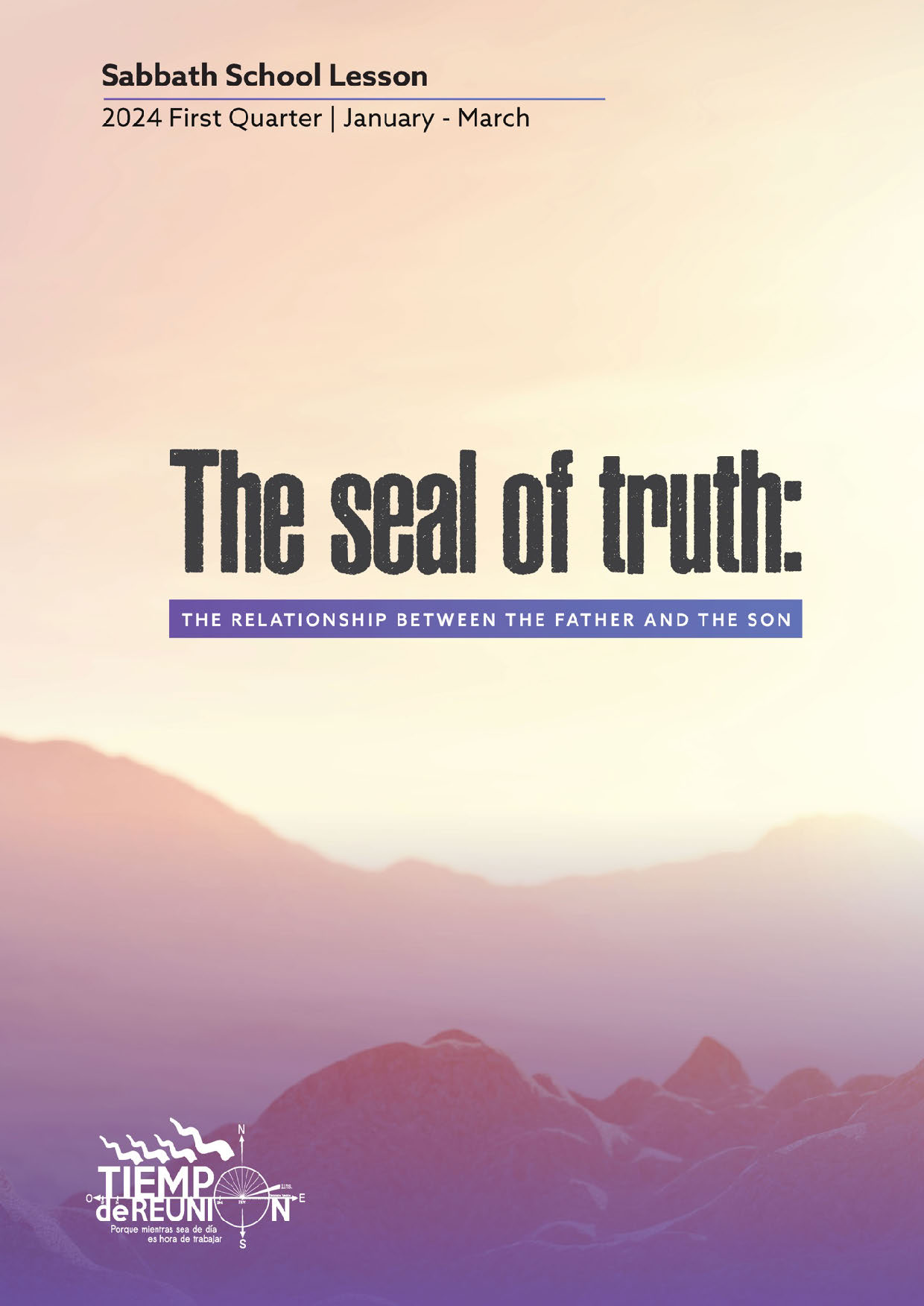Lost in translation: hearing or obedience? + русский
Sin manifested when God became a professed enemy to distort the nature of the Creator.
Was it a sin? Yes, it was a lie and slander the character of a loving Father.
Because there is a great struggle is for our understanding of the nature of God.
The main question of this opposition: And what is God?
A vengeful tyrant, demanding unquestioning obedience?
Or a loving Father, wants his children were able to hear the rumble in the vanity of this world and the gentle quiet voice of Him Whom the Scriptures called the Comforter ...
Can our relationship with the Father and His Son, based on recognition of their will, when this obedience is present at least some of coercion? Or lack of freedom? Do you agree with the fact that God wants to free love?
I remembered an episode from the novel by Dostoyevsky ...
Even the Grand Inquisitor knew that the Son of God showed the entire universe, that God longs for a relationship based on free love…
THE GRAND INQUISITOR: And so will they do till the end of this world; they will do so even then, when all the gods themselves have disappeared, for then men will prostrate themselves before and worship some idea. Thou didst know, Thou couldst not be ignorant of, that mysterious fundamental principle in human nature, and still thou hast rejected the only absolute banner offered Thee, to which all the nations would remain true, and before which all would have bowed—the banner of earthly bread, rejected in the name of freedom and of "bread in the kingdom of God"! Behold, then, what Thou hast done furthermore for that "freedom's" sake! I repeat to Thee, man has no greater anxiety in life than to find some one to whom he can make over that gift of freedom with which the unfortunate creature is born. But he alone will prove capable of silencing and quieting their consciences, that shall succeed in possessing himself of the freedom of men. With "daily bread" an irresistible power was offered Thee: show a man "bread" and he will follow Thee, for what can he resist less than the attraction of bread? But if, at the same time, another succeed in possessing himself of his conscience—oh! then even Thy bread will be forgotten, and man will follow him who seduced his conscience. So far Thou wert right. For the mystery of human being does not solely rest in the desire to live, but in the problem—for what should one live at all? Without a clear perception of his reasons for living, man will never consent to live, and will rather destroy himself than tarry on earth, though he be surrounded with bread. This is the truth. But what has happened? Instead of getting hold of man's freedom, Thou has enlarged it still more! Hast Thou again forgotten that to man rest and even death are preferable to a free choice between the knowledge of Good and Evil? Nothing seems more seductive in his eyes than freedom of conscience, and nothing proves more painful. And behold! instead of laying a firm foundation whereon to rest once for all man's conscience, Thou hast chosen to stir up in him all that is abnormal, mysterious, and indefinite, all that is beyond human strength, and has acted as if Thou never hadst any love for him, and yet Thou wert He who came to "lay down His life for His friends!" Thou hast burdened man's soul with anxieties hitherto unknown to him. Thirsting for human love freely given, seeking to enable man, seduced and charmed by Thee, to follow Thy path of his own free-will, instead of the old and wise law which held him in subjection, Thou hast given him the right henceforth to choose and freely decide what is good and bad for him, guided but by Thine image in his heart. But hast Thou never dreamt of the probability, nay, of the certainty, of that same man one day rejected finally, and controverting even Thine image and Thy truth, once he would find himself laden with such a terrible burden as freedom of choice? That a time would surely come when men would exclaim that Truth and Light cannot be in Thee, for no one could have left them in a greater perplexity and mental suffering than Thou has done, lading them with so many cares and insoluble problems. Thus, it is Thyself who hast laid the foundation for the destruction of Thine own kingdom and no one but Thou is to be blamed for it.
"'Meantime, every chance of success was offered Thee. There are three Powers, three unique Forces upon earth, capable of conquering for ever by charming the conscience of these weak rebels—men—for their own good; and these Forces are: Miracle, Mystery and Authority. Thou hast rejected all the three, and thus wert the first to set them an example. When the terrible and all-wise spirit placed Thee on a pinnacle of the temple and said unto Thee, "If Thou be the son of God, cast Thyself down, for it is written, He shall give His angels charge concerning Thee: and in their hands they shall bear Thee up, lest at any time Thou dash Thy foot against a stone!"—for thus Thy faith in Thy father should have been made evident, Thou didst refuse to accept his suggestion and didst not follow it. Oh, undoubtedly, Thou didst act in this with all the magnificent pride of a god, but then men—that weak and rebel race—are they also gods, to understand Thy refusal? Of course, Thou didst well know that by taking one single step forward, by making the slightest motion to throw Thyself down, Thou wouldst have tempted "the Lord Thy God," lost suddenly all faith in Him, and dashed Thyself to atoms against that same earth which Thou camest to save, and thus wouldst have allowed the wise spirit which tempted Thee to triumph and rejoice. But, then, how many such as Thee are to be found on this globe, I ask Thee? Couldst Thou ever for a moment imagine that men would have the same strength to resist such a temptation? Is human nature calculated to reject miracle, and trust, during the most terrible moments in life, when the most momentous, painful and perplexing problems struggle within man's soul, to the free decisions of his heart for the true solution?...
……………………
Anyone who calls for obedience to God outside the context of the great controversy and is the revelation of agape, is exposed to the temptation to distort the nature of our Heavenly Father.
In the original language, God always calls us is to listen to His voice - that is, to His Word.
Now therefore hearken 08085, O Israel, unto the statutes and unto the judgments, which I teach you, for to do them, that ye may live, and go in and possess the land which the LORD God of your fathers giveth you.
(Deuteronomy 4: 1)
Strong - 08,085
1. hear, hear;
2. to listen, to listen.
In Russian, as well as in English, the text uses the word " hearken ".
The root of the word refers to the Russian word – ear, hearing (English - hearing, rumor)
Faith begins where all my heart accepted God's Word and His promises ....
Because that Abraham obeyed 08085 my voice, and kept my charge, my commandments, my statutes, and my laws.
(Genesis 26: 5)
In English, there is another word - obeyed, and on Russian use cognates of the word "hear" - ПОСЛУШАЛСЯ. On Russian and Hebrew language preserved the connection with the voice of God.
Вера начинается там, где всем сердцем принимается Божье Слово и Его обещания….
Вот вера Авраама: За то, что Авраам послушался 08085 08804 гласа Моего…
(Бытие26:5,6)
It is this faith - the faith of Abraham - and then showed a Roman centurion.
The centurion answered and said, Lord, I am not worthy that thou shouldest come under my roof: but speak the word only, and my servant shall be healed.
For I am a man under authority, having soldiers under me: and I say to this man, Go, and he goeth; and to another, Come, and he cometh; and to my servant, Do this, and he doeth it.
When Jesus heard it, he marvelled, and said to them that followed, Verily I say unto you, I have not found so great faith, no, not in Israel.
(Matthew 8:8-10)
«But speak the word only»!
Here's a faith, Jesus expects from us!
Abraham's faith comes by hearing.
So then faith cometh by hearing, and hearing by the word of God.
(Romans 10:17)
All translators Slavic Bible, revealing the nature of the relationship of God and man, put emphasis on the word - "ПОСЛУШАНИЕ", which refers to the English «hearing» the word.
And now to work on a text we had a "big problem".
I ask you to perform a practical task.
Think and specify that you said to the translator of the book of God and the family, which is a bulk text (270 pages) 150 times uses the word "obedience" and cognate words, implying in Russian forced submission ... and several times less than using the word-archetype " ПОСЛУШАНИЕ ", close to the English word of hearing?
Keep in mind that the Bible is dominated by Russian use of the word "ПОСЛУШАНИЕ" - hearing, and not the word "ПОВИНОВЕНИЕ - obedience" (in Russian this word has a clear subordination of shade).
To dispel any doubts, let us point to the cultural and historical context in which the Russian word "ПОВИНОВЕНИЕ - obedience" itself.
From the Russian word "ПОВИНОВЕНИЕ - obedience" comes this word as "ПОВИННОСТЬ - conscription " (conscription and conscription of recruits ...)
The etymology of the right indicates that the Russian word "obedience" is cognate words in other languages, which means "war" and "hunting".
Conscription recruits in the Russian Empire was an absolute evil.
One example: in Russia in the 19th century lived a few million Jews.
Typesetters recruits often steal children from Jewish families, to give them the royal army. Many children do not survive in transit or died of starvation and beatings. Ahead of them still waiting for certain death, because the service in the Czar's army continued for several decades! As we know from history, Russia has practically never lived peacefully - constant war for the huge territory required a large army and a lot of "cannon fodder" ...
So, it is necessary to make a choice ...
What word is taken as dominant in the translation?
The word, the root of which is the word "hearing"?
Or a word that has a direct bearing on the war?
Keep in mind, in the 19th century has not invented anesthesia, when shot and shrapnel tore part of the soldier's body, he could not lend a hand in the medicine cabinet for a syringe with morphine ...
You understand that we need to choose a completely holy - Kadesh - separated with in its original meaning of a word to describe the relationship of God to the people, because our God is holy and is not involved in evil - a compulsion to steal children, cannon fodder?
We believe in it, because the Son of God is revealed by opening the curtain for the understanding of God's character ...
For such an high priest became us, who is holy, harmless, undefiled, separate from sinners, and made higher than the heavens…
(Hebrews 7:26)
The Russian-language church laid archetype, clearly indicating that God expects of His children. The oldest manuscript in the Slavonic language dates back to the XI century. This handwritten masterpiece called Ostrom Gospel.
So, look at the Gospel of the ancient church in Russian.
The apostle John exclaims that he writes in his letters is that he had heard with his own ears - see 1 John 1: 1. On OLD RUSSIAN LANGUAGE - "heard" - a " еже слышахом» - 08085!
Obedience to God is obedience to His Word, that is, acceptance of faith of all the truths of the gospel. Spiritual freedom of each person, according to Dostoevsky - it is so important matter that people rush to transfer full responsibility for their actions in the spiritual sphere and the religious sphere to another person or church organization. That's what happened at Sinai, when all the people refused to listen to God's voice, and decided to appoint the mediator Moses, speaking with God. The people refused to spiritual freedom by way of submission to external authority, or - the law on tablets of stone.
We can say that "obedience" - it is a state of mind where a person does not want God to communicate with him directly ... Jesus remains behind the door ... This is the Old Testament ... This is not the covenant of God with Abraham ... Abraham and the Roman centurion was enough " hearing "the voice of God.
It must be admitted that the word "ПОВИНОВЕНИЕ - obey" in Russian is not an archetype to describe the relationship between God and man.
In this word in Slavic languages - Ukrainian and Belarus - is not unique internal connection with the voice of God.
So, for you cleared choice? Hearing or obedience?
.....................
Оригинал статьи на русском языке
ТРУДНОСТИ ПЕРЕВОДА: ПОСЛУШАНИЕ ИЛИ ПОВИНОВЕНИЕ?
Грех проявился, когда противник Бога стал во всеуслышание искажать характер Творца.
Был ли это грех? Да, это была ложь и клевета на характер любящего Отца.
Потому идёт великая борьба именно за наши представления о характере Бога.
Главный вопрос этого противостояния: А какой Бог?
Мстительный тиран, требующий беспрекословного подчинения?
Или любящий Отец, желающий, чтобы Его дети смогли расслышать в суете и громыхании этого мира нежный тихий голос Того, Кого Писания называют Утешителем…
Могут ли наши отношения с Отцом и Его Сыном основываться на признании Их воли, когда в этом повиновении присутствует хотя бы часть принуждения? Или несвободы? Согласны ли вы с тем, что Бог желает свободной любви?
Вспомнился один эпизод из романа Достоевского…
Даже Великий Инквизитор прекрасно понимал, что Сын Божий продемонстрировал всей Вселенной, что Бог жаждет отношений, основанных на свободной любви…
ВЕЛИКИЙ ИНКВИЗИТОР: Ибо тайна бытия человеческого не в том, чтобы только жить, а в том, для чего жить. Без твердого представления себе, для чего ему жить, человек не согласится жить и скорей истребит себя, чем останется на земле, хотя бы кругом его всё были хлебы. Это так, но что же вышло: вместо того чтоб овладеть свободой людей, ты увеличил им ее еще больше! Или ты забыл, что спокойствие и даже смерть человеку дороже свободного выбора в познании добра и зла? Нет ничего обольстительнее для человека, как свобода его совести, но нет ничего и мучительнее. И вот вместо твердых основ для успокоения совести человеческой раз навсегда — ты взял всё, что есть необычайного, гадательного и неопределенного, взял всё, что было не по силам людей, а потому поступил как бы и не любя их вовсе, — и это кто же: тот, который пришел отдать за них жизнь свою! Вместо того чтоб овладеть людскою свободой, ты умножил ее и обременил ее мучениями душевное царство человека вовеки. Ты возжелал свободной любви человека, чтобы свободно пошел он за тобою, прельщенный и плененный тобою. Вместо твердого древнего закона — свободным сердцем должен был человек решать впредь сам, что добро и что зло, имея лишь в руководстве твой образ пред собою, — но неужели ты не подумал, что он отвергнет же наконец и оспорит даже и твой образ и твою правду, если его угнетут таким страшным бременем, как свобода выбора? Они воскликнут наконец, что правда не в тебе, ибо невозможно было оставить их в смятении и мучении более, чем сделал ты, оставив им столько забот и неразрешимых задач. Таким образом, сам ты и положил основание к разрушению своего же царства и не вини никого в этом более. А между тем то ли предлагалось тебе? Есть три силы, единственные три силы на земле, могущие навеки победить и пленить совесть этих слабосильных бунтовщиков, для их счастия, — эти силы: чудо, тайна и авторитет. Ты отверг и то, и другое, и третье и сам подал пример тому. Когда страшный и премудрый дух поставил тебя на вершине храма и сказал тебе: „Если хочешь узнать, сын ли ты божий, то верзись вниз, ибо сказано про того, что ангелы подхватят и понесут его, и не упадет и не расшибется, и узнаешь тогда, сын ли ты божий, и докажешь тогда, какова вера твоя в отца твоего“, но ты, выслушав, отверг предложение и не поддался и не бросился вниз. О, конечно, ты поступил тут гордо и великолепно, как бог, но люди-то, но слабое бунтующее племя это — они-то боги ли? О, ты понял тогда, что, сделав лишь шаг, лишь движение броситься вниз, ты тотчас бы и искусил господа, и веру в него всю потерял, и разбился бы о землю, которую спасать пришел, и возрадовался бы умный дух, искушавший тебя. Но, повторяю, много ли таких, как ты? И неужели ты в самом деле мог допустить хоть минуту, что и людям будет под силу подобное искушение? Так ли создана природа человеческая, чтоб отвергнуть чудо и в такие страшные моменты жизни, моменты самых страшных основных и мучительных душевных вопросов своих оставаться лишь со свободным решением сердца? О, ты знал, что подвиг твой сохранится в книгах, достигнет глубины времен и последних пределов земли, и понадеялся, что, следуя тебе, и человек останется с богом, не нуждаясь в чуде. Но ты не знал, что чуть лишь человек отвергнет чудо, то тотчас отвергнет и бога, ибо человек ищет не столько бога, сколько чудес. И так как человек оставаться без чуда не в силах, то насоздаст себе новых чудес, уже собственных, и поклонится уже знахарскому чуду, бабьему колдовству, хотя бы он сто раз был бунтовщиком, еретиком и безбожником. Ты не сошел с креста, когда кричали тебе, издеваясь и дразня тебя: „Сойди со креста и уверуем, что это ты“. Ты не сошел потому, что опять-таки не захотел поработить человека чудом и жаждал свободной веры, а не чудесной. Жаждал свободной любви, а не рабских восторгов невольника пред могуществом, раз навсегда его ужаснувшим.
……………………………………………………………………………..
Тот, кто призывает к повиновению Богу вне контекста великой борьбы и вне откровения об агапэ, подвержен искушению искажать характер нашего Небесного Отца.
На языке оригинала Бог всегда призывает нас именно прислушиваться к Его голосу – то есть к Его Слову.
Итак, Израиль, слушай 08085 08798 постановления и законы, которые я научаю вас исполнять…
(Второзаконие 4:1)
Now therefore hearken 08085, O Israel, unto the statutes and unto the judgments, which I teach you, for to do them, that ye may live, and go in and possess the land which the LORD God of your fathers giveth you.
(Deuteronomy 4:1)
Стронг - 08085
1 . слышать, слушать;
2 . слушаться, внимать.
На русском языке, также как и в английском, в этом тексте употребляется слово «слушай».
Корень этого слова на русском относится к слову – слух, слышание (на английском - hearing, rumor)
Вера начинается там, где всем сердцем принимается Божье Слово и Его обещания….
Вот вера Авраама: За то, что Авраам послушался 08085 08804 гласа Моего…
(Бытие26:5,6)
Because that Abraham obeyed my voice, and kept my charge, my commandments, my statutes, and my laws.
(Genesis 26:5)
На английском языке здесь другое слово – obeyed, а на русском используется однокоренное слово от слова «слышать» - ПОСЛУШАЛСЯ. Это слово означает, что Аврааму было достаточно услышать Слово Божье, чтобы поступить так, как его просит Бог. В этом слове на русском языке нет никакого оттенка вынужденного подчинения.
Именно такую веру – веру Авраама – потом продемонстрировал римский сотник.
Сотник же, отвечая, сказал: Господи! я недостоин, чтобы Ты вошел под кров мой, но скажи только слово, и выздоровеет слуга мой;
9. ибо я и подвластный человек, но, имея у себя в подчинении воинов, говорю одному: пойди, и идет; и другому: приди, и приходит; и слуге моему: сделай то, и делает.
10. Услышав сие, Иисус удивился и сказал идущим за Ним: истинно говорю вам, и в Израиле не нашел Я такой веры.
(Евангелие от Матфея 8:8-10)
«Но скажи только слово!»
Вот такой веры ждёт от нас Иисус!
Вера Авраама от слышания.
Итак вера от слышания, а слышание от слова Божия.
(Послание к Римлянам 10:17)
So then faith cometh by hearing, and hearing by the word of God.
(Romans 10:17)
Все переводчики славянских Библий, раскрывая характер взаимоотношений Бога и людей, делают акцент на слове - «послушание», которое относится к английскому слову hearing.
И вот в работе над одним текстом у нас возникла «большая проблема».
Прошу вас выполнить практическое задание.
Подумайте и сформулируйте, что бы вы сказали переводчику книги о Боге и семье, который в объёмном тексте (270 страниц) 150 раз употребляет слово «повиновение» и однокоренные слова, подразумевающее на русском языке принудительное подчинение… И в несколько раз меньше использует слово-архетип «послушание», близкое к английскому слову hearing?
Имейте в виду, что в русской Библии доминирует употребление слова «послушание» - hearing, а не слово «повиновение» (на русском языке это слово имеет явный оттенок подчинения).
Чтобы развеять все сомнения, давайте укажем на культурно-исторический контекст, в котором находится само русское слово «повиновение».
От русского слова «повиновение» происходит такое слова как «повинность» (воинская повинность, а также повинность рекрутов…)
Этимология прямо указывает, что русское слово «повиновение» родственно словам в других языках, которые обозначают «войну» и «охоту».
Воинская повинность рекрутов в Российской империи была абсолютным злом.
Один пример: в России в 19 веке проживало несколько миллионов евреев.
Наборщики рекрутов часто воровали детей из еврейских семей, чтобы отдать их в царскую армию. Многие дети не выживали при пересылке или умирали от голода и побоев. Впереди их всё равно ждала верная смерть, потому что служба в царской армии продолжалась несколько десятков лет! Как мы знаем из истории, Россия практически никогда не жила мирно – постоянные войны за огромную территорию требовали большой армии и много «пушечного мяса»…
Итак, надо сделать выбор…
Какое слово взять за доминанту при переводе?
Слово, корнем которого является слово «слышание»?
Или слово, имеющее прямое отношение к войне?
Имейте в виду, в 19 веке ещё не придумали анестезию, и когда выстрелом шрапнели отрывало часть туловища солдата, он не мог протянуть руку в аптечку за шприцем с морфием…
Вы понимаете, что нам нужно выбрать совершенно святое – кадеш – отделённое в своём изначальном значении слово для обозначения отношения Бога к людям, потому что наш Бог свят и не причастен злу – к принуждению, к воровству детей, к пушечному мясу?
Мы верим в это, потому что Сын Божий это явил, открыв завесу для понимания Божьего характера…
«Таков и должен быть у нас Первосвященник: святой, непричастный злу, непорочный, отделенный от грешников и превознесенный выше небес…»
(Послание к Евреям 7:26)
В русском церковном языке заложен архетип, ясно указывающий на то, что Бог ожидает от Своих детей. Древнейшая рукопись на славянском языке датируется XI веком. Этот рукописный шедевр называют Остромирово Евангелие.
Итак, заглянем в Евангелие на древнем церковном русском языке.
Апостол Иоанн восклицает, что он пишет в своих посланиях именно о том, что слышал собственными ушами – смотри 1 Послание Иоанна 1:1. На церковнославянском – «что слышали» - это «еже слышахом».
Послушание Богу - это послушание Его Слову, то есть принятие верой всех истин Евангелия. Духовная свобода каждого человека, как пишет Достоевский – это настолько ответственное дело, что люди спешат передать всю ответственность за свои действия в духовной сфере и в религиозной сфере на другого человека или церковную организацию. Именно это произошло у Синая, когда весь народ отказался слушать голос Бога, а решил назначить Моисея на роль посредника, говорящего с Богом. Народ отказался от духовной свободы, выбрав путь подчинения внешнему авторитету, то есть закону на каменных скрижалях.
Можно сказать, что «повиновение» – это такое состояния души, когда человек не хочет, чтобы Бог общался с ним напрямую… Иисус остаётся за дверью… Это и есть ветхий завет… Это не завет Бога с Авраамом… Аврааму и римскому сотнику было достаточно «слышания» голоса Бога.
Нужно признать, что слово « повиновение» на русском языке не является архетипом для обозначения взаимоотношений между Богом и человеком.
В этом слове на славянских языках - на украинском и белорусском - нет однозначной внутренней связи с голосом Божьим.
Итак, для вас прояснился выбор? Слышание или повиновение?





